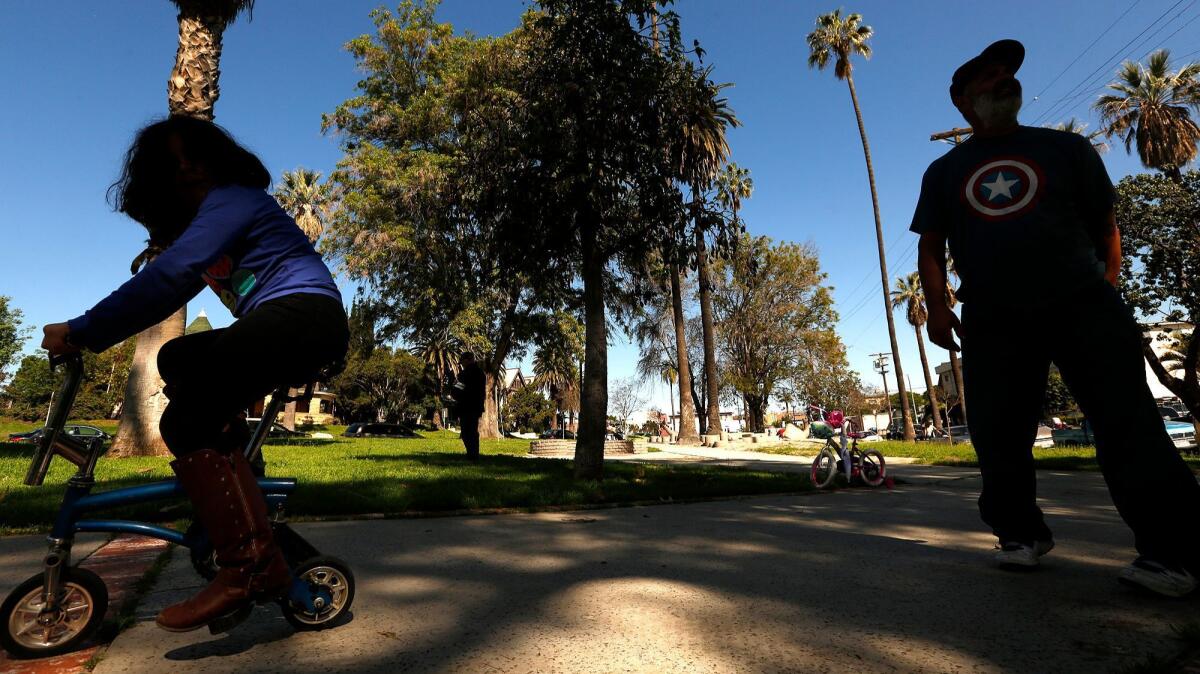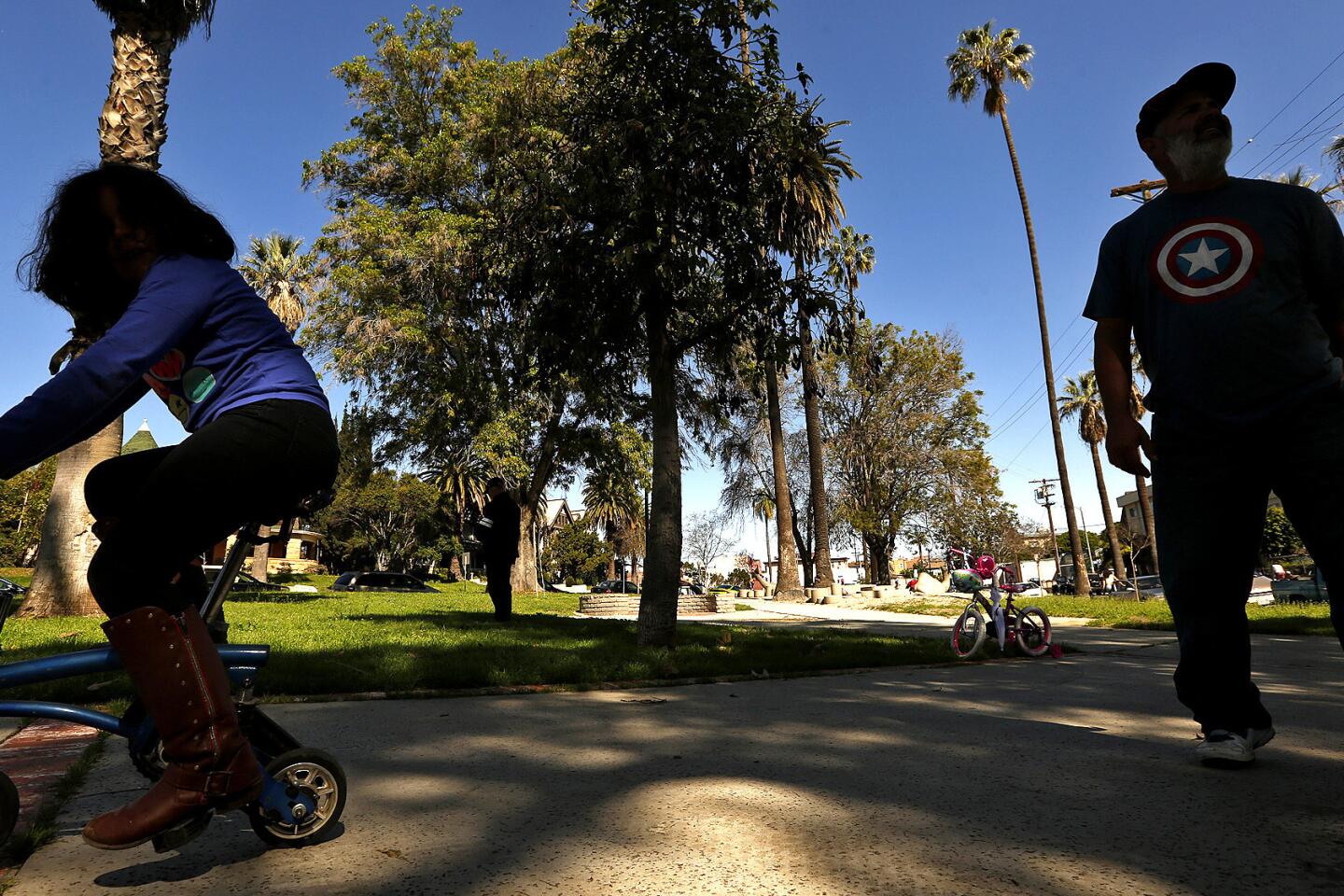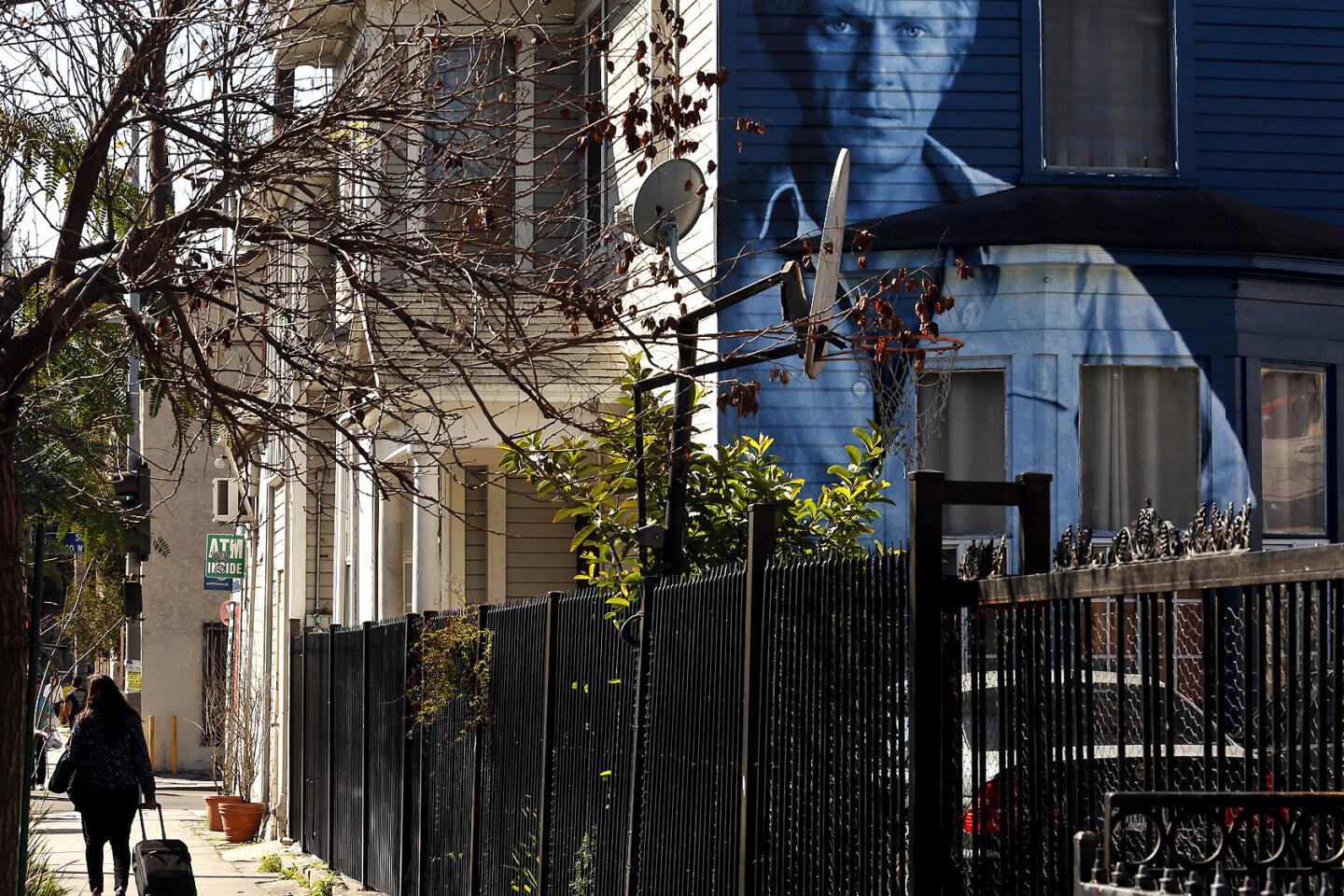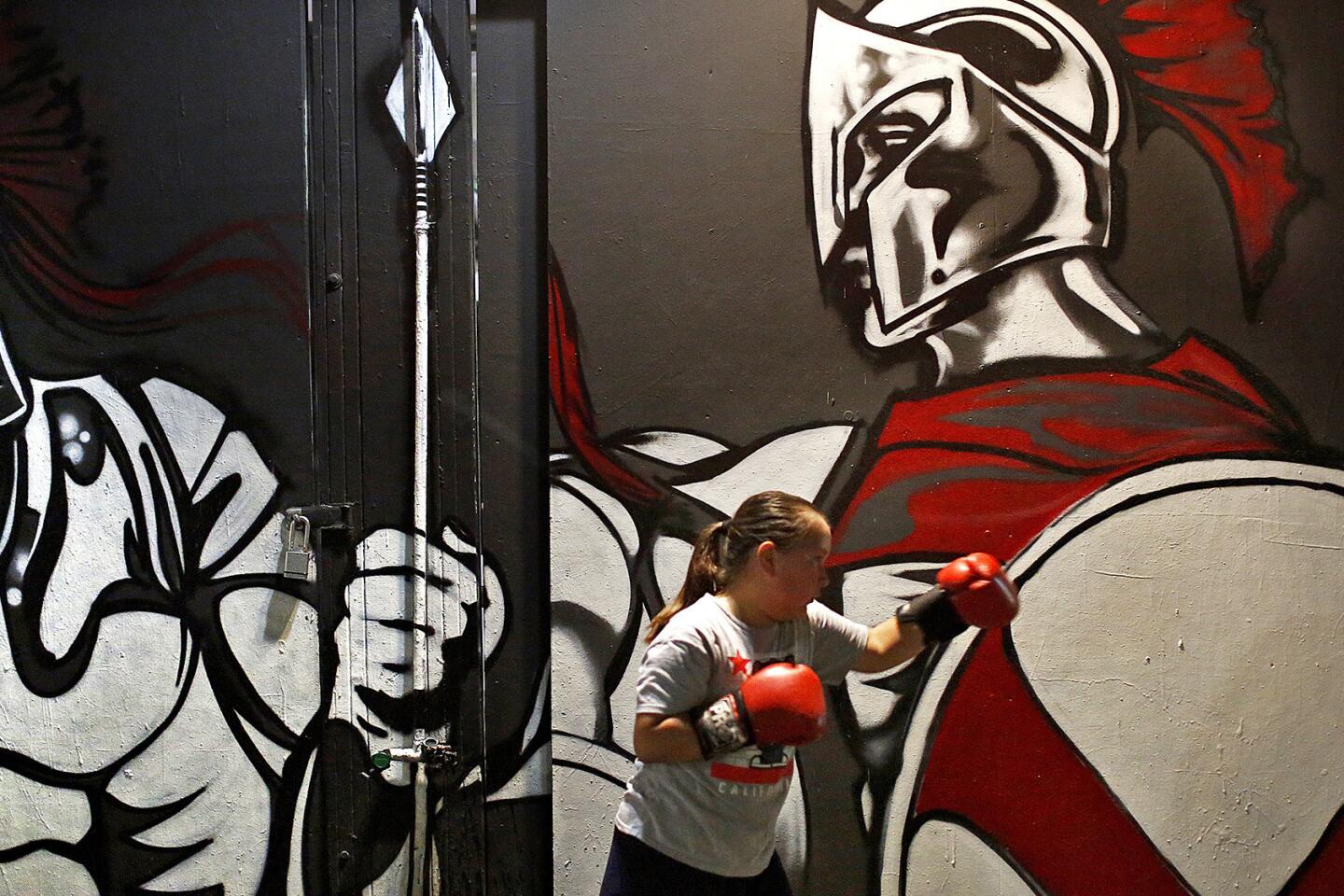Neighborhood Spotlight: Pico-Union’s architectural backdrop endures amid cultural evolution
- Share via
Hundreds of thousands of commuters grind their way up and down Hoover Street each year, inching their way, red light to red light, through one of L.A.’s densest neighborhoods.
Most of them are unaware that just a few steps from Hoover’s junction with traffic-clogged Alvarado Street is a stunning time capsule of early Los Angeles, a neighborhood of grand homes and houses of worship offering a glimpse into a bygone era. It is a place built for life at the pace of a brisk walk to the corner store or a slow trolley ride to catch a vaudeville show on Broadway.
In Pico-Union, homes and apartment buildings constructed between the 1880s and the 1940s still stand, many of them well-preserved, and some of them on the few remaining brick-paved streets anywhere in the city. From Queen Anne to Craftsman and everything in between, this neighborhood, which was once part of greater Westlake, traces the history of L.A.’s prewar residential styles.
The first homes were built here in the 1860s, when this part of the city was the far-flung western edge of the original pueblo.
The first homes in the area were adobes and farmhouses in the style of the American Midwest, but the streetcar brought downtown’s grandees and their large Victorian homes to this former hinterland.
As the central business district grew, even some of the homes there migrated westward to Pico-Union — they didn’t tear houses down then, they moved them.
As the city’s population skyrocketed from 11,000 in the 1880s to more than 1 million just 50 years later, this former suburb found itself at the heart of a booming metropolis. The well-to-do began to move to the Westside and beyond, and the neighborhood was eventually hemmed in by freeway construction. In the rush to the new, this oldest of neighborhoods was forgotten by many.
In the 1970s and 1980s, the rambling old homes that had long since been carved into apartments played a critical role in housing Central American immigrants fleeing devastating civil wars. In the years since, Pico-Union has remained an important gateway neighborhood for immigrants from across Latin America.
L.A.’s latest boom has brought renewed investment in Pico-Union, whose proximity to downtown is once again a draw. There are plans for new affordable housing units, hotels and office buildings stretching from the Harbor Freeway to Normandie Avenue, and a new subway line is being discussed for Vermont Avenue.
Neighborhood highlights
The past, preserved: Pico-Union’s Alvarado Terrace and South Bonnie Brae historic districts are incredibly intact, all the way down to L.A.’s shortest street, the 13-foot long, brick-paved Powell Place.
Prewar paradise: For lovers of homes in the styles popular before the late 1940s — especially Queen Anne aficionados — Pico-Union is architectural nirvana.
A rich heritage: With a history of immigration from Korea, Greece, Mexico, Guatemala, El Salvador, and more, Pico-Union has a rich mix of cultures.
Neighborhood challenges
Thoughtful redevelopment: As investment ramps up, the historic character of the neighborhood’s environment could come under pressure from developers.

Expert insight
Rising prices in downtown L.A. are driving buyers to neighboring communities such as Pico-Union, said Carol Li, a Fidelity Realtors agent who has a listing on South Westlake Avenue.
“This area has great potential,” she said. “Pico-Union is right next to downtown, and a lot of improvements are happening to the area.”
Li was quick to point out that “improvements” does not mean tearing down structures in the historical area, but rather the restoration of them. “This general area is a historical one,” she said. “If [developers] want to do something to the home, they have to keep the outside look.”
As for the market, things are picking up, but it really depends on the pricing, condition and location of the building. “It’s a great area; a lot of investors are taking note,” she said.
Market snapshot
In the 90006 Zip Code, based on six sales, the median sales price for single-family homes in March was $720,000, according to CoreLogic. That was a 25.7% increase in median price over the same month the previous year.
Report card
Within the boundaries of Pico-Union is Tenth Street Elementary, which had a score of 795 out of 1,000 in the 2013 Academic Performance Index. Magnolia Avenue Elementary scored 770, and Leo Politi Elementary had a score of 747. Berendo Middle scored 739, and West Adams Preparatory High had a score of 646.
MORE FROM HOT PROPERTY
Luxury lodge in Santa Monica catches lobbyist’s eye
Sting lists rock star-worthy digs in NYC at $56 million
Raquel Welch’s former Beverly Hills home retains its looks
More to Read
Sign up for Essential California
The most important California stories and recommendations in your inbox every morning.
You may occasionally receive promotional content from the Los Angeles Times.










